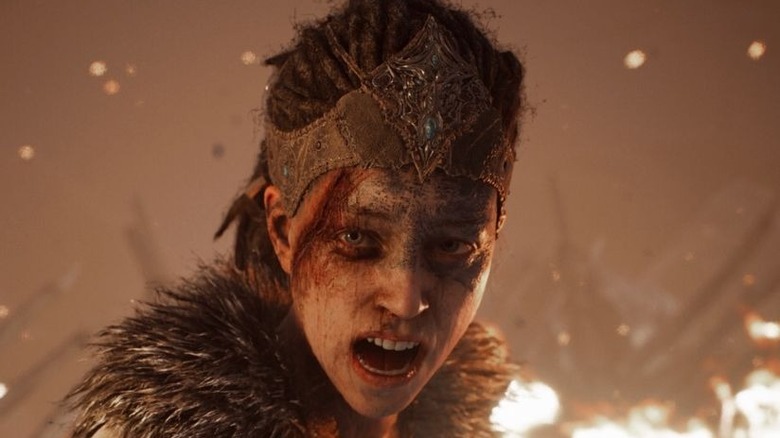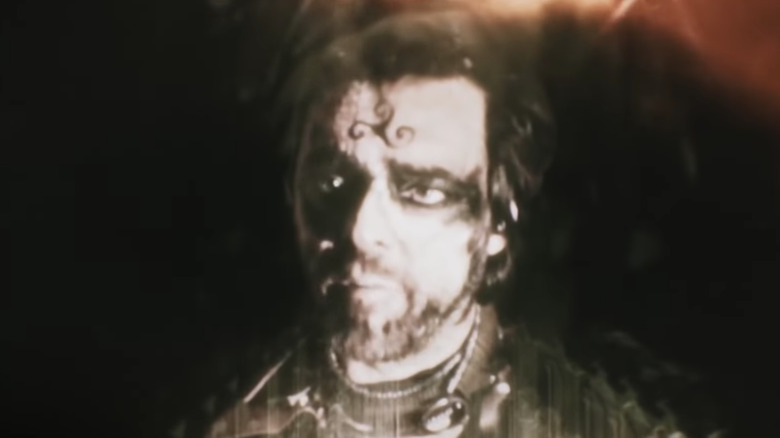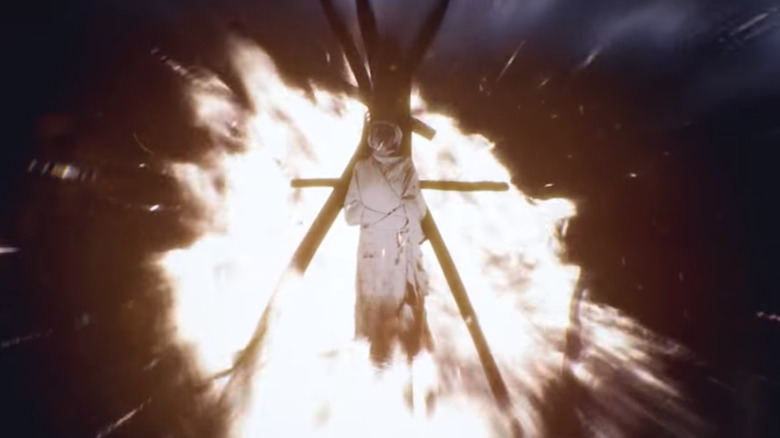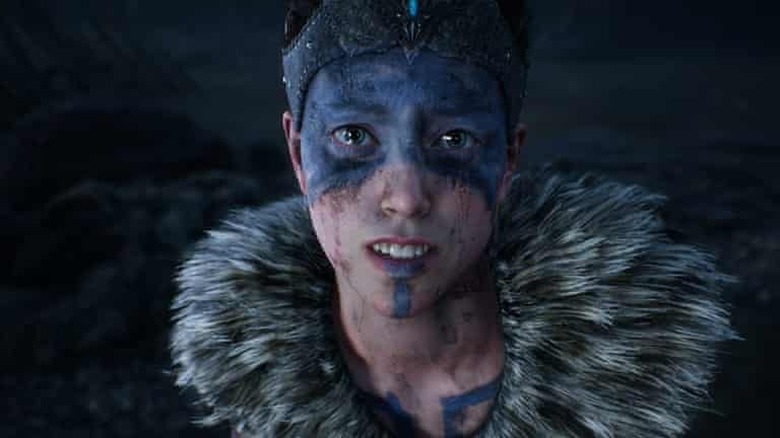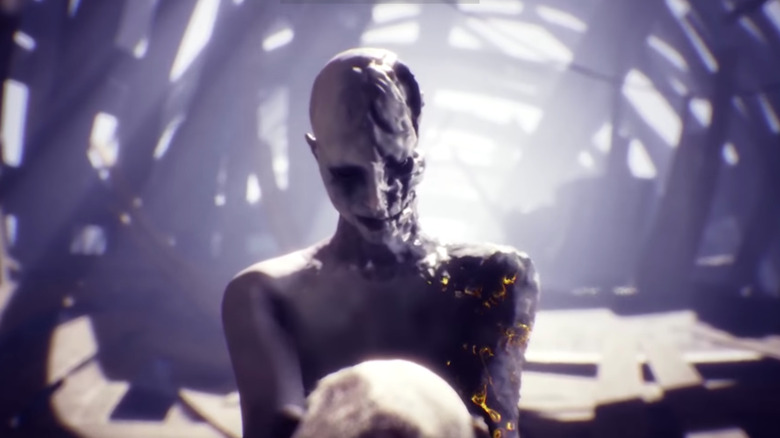The Ending Of Hellblade Explained
"Hellblade: Senua's Sacrifice" shook the industry when developer Ninja Theory first released the action game. Achieving an 88 on Metacritic, the game featured a protagonist, Senua, who suffered from a realistically-portrayed psychosis, which can cause someone to lose touch with reality and experience hallucinations. The story of the game dives into Norse mythology and Celtic culture as Senua, a pit warrior, goes through a very personal journey. In "Senua's Sacrifice," Senua must travel to the Norse underworld of Helheim in order to save the soul of Dillion, her deceased lover.
Since the game follows someone who regularly experiences hallucinations and other lifelike visions that aren't real, it can occasionally be difficult to understand the story. Senua's journey concludes with Senua going to battle Hela, whom Senua wants to help free Dillion. Prior to this battle, however, there are a number of important story beats, including one that is locked behind the game's collectibles. Collecting all of the lorestones unlocks an additional cutscene featuring Senua's father.
The hidden cutscene
If you've collected all 44 lorestones during "Hellblade: Senua's Sacrifice," an additional cutscene featuring Senua's father plays before the final battle. Senua's father admits to being a coward, as he tried to save himself by leading invaders to the treasures and slaves they were after. However, he was still enslaved himself and suffered, despite his choice to aid the invaders. He tells Senua that another person from her village attempted to make the same deal with the northmen, someone dressed in all black. He then tells Senua that it is not the gods who cause suffering, but those close to us.
This cutscene provides a bit of context and foreshadowing for the rest of the game's ending. It is a cool reward to those who collected all the lorestones, but it ultimately doesn't change the end of "Hellblade: Senua's Sacrifice" in any significant way. As u/khell18 says on Reddit, "It's not an alternate ending. Just an extra cutscene that explains some lore things."
The true fate of Senua's mother
Throughout the game it is referenced that Senua's mother thought of herself as cursed, similar to Senua. A cutscene near the end of the game reveals that Senua's mother was burnt at the stake. She was killed by the townspeople, led by Senua's father, who thought he was saving her. Senua's father claims that this horrible decision was the will of the gods, as Senua's mother had allowed the "voices of the underworld" into her mind. In truth, Senua's mother dealt with mental health issues very similar to Senua's.
As Senua remembers her mother's death, she blames her father for the darkness that haunts her. It is at this moment that Senua comes to terms with the years of abuse dealt to her and her mother by her father. Senua says that her father used the gods as an excuse to do horrible things to them. At last, Senua is able to confront the darkness. This scene leads into Senua fighting Hela, while also arguing with the omniscient voice of her father.
The final battle
After Senua fights a seemingly endless number of enemies, she goes down, triggering the final cutscene of the game. Senua is on the ground, writhing in pain as Hela approaches with her sword. Senua suddenly realizes that if the darkness and Hela aren't real, then Dillion cannot be saved. Senua quickly spins into denial and starts offering her soul to Hela in exchange for Dillion's revival.
Without responding, Hela grabs Senua and stabs her in the chest. Hela is then shown dropping Dillion's skull over a ledge, but when the camera pans back up, it is Senua in her place, finally managing to say goodbye to Dillion.
Senua turns to leave, and the audience can see Hela's body on the ground, in the exact spot where Senua's had originally been. One of the voices says that there are more stories to tell — and the game fades to black.
What happened to Senua?
While fans know Senua is still around — after all, she appears in the trailer for "Senua's Saga: Hellblade — the ending of the original game can be unclear about what exactly happens during the final hour of the game. Over on Reddit, u/Fjalthur wrote a massive breakdown on what they think happens at the end of the game.
They believe that Hela is a representation of the more sensible side of Senua, one that was demonized by her psychosis. "This explains why she was so devastated and so afraid when she first met Hela. When Hela, her biggest problem, her other side, was directly in front of her," u/Fjalthur wrote.
They believe that the ending of Hela throwing the skull over the ledge is meant to represent Senua realizing that her attachment to it was unhealthy. There is also a brief scene of Dillion speaking to Senua, saying that she needs to be more accepting of death, something that ties in with Hela throwing the skull over the ledge.
Over on Steam, user Bullett00th agrees, writing "But Hela wasn't real – Senua herself was Hela, and she killed the part of her that wouldn't accept Dillion's death." In this interpretation of events, the final battle is all within Senua's mind, and the player finally helps her to move on from her past.

